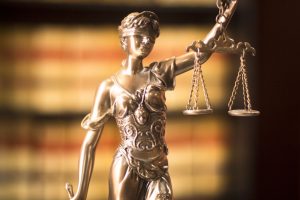As it’s been discussed in the news lately, an overview of the Constitutional Power to Pardon seems timely.
The U.S. Constitution provides:
“The President. . . Shall have Power to grant Reprieves and Pardons for Offences against the United States, except in Cases of Impeachment.” U.S. Constitution, Article II, Section 2, Clause 1.
The scope of Presidential pardon power remains sweeping, perhaps without any restriction.
“If granted before conviction, it prevents any of the penalties and disabilities consequent upon conviction from attaching; if granted after conviction, it removes the penalties and disabilities and restores him to all his civil rights, it makes him as it were, a new man, and gives him a new credit and capacity. . . a Pardon reaches both the punishment prescribed for the offence and the guilt of the offender. . . so that in the eye of the law the offender is as innocent as if he had never committed the offence.” Ex Parte Garland (1867) (Justice Field).
Generally speaking, the U.S. Justice Department requires that anyone requesting a pardon wait five (5) years after conviction or release prior to receiving a pardon. But a Presidential Pardon may be granted at any time — as when President Gerald Ford pardoned President Richard Nixon.
For Presidential pardons, the pardoned person need not have yet even then been convicted or formally charged with a crime. Duker, William F. (1976), “The President’s Power to Pardon: A Constitutional History”. William and Mary Law Review, 18:501-502.
Presidential pardon power remains enormous. “Only the wisdom of the President can assure its appropriate use.” Pardon Power, James Pfiffner. In 2007, President George W. Bush issued 29 pardons, but did not include Scooter Libby among them. (Libby’s sentence was commuted.)
In fact, the possibility of a President self-pardoning for a crime is not precluded by the explicit language of the Constitution. During the Watergate in 1974, some of President Nixon’s lawyers argued that it was Constitutionally permissible. Other scholars argue that a broad reading of the Constitution and general principles of United States law compelled the conclusion that a self-pardon is Constitutionally impermissible.

